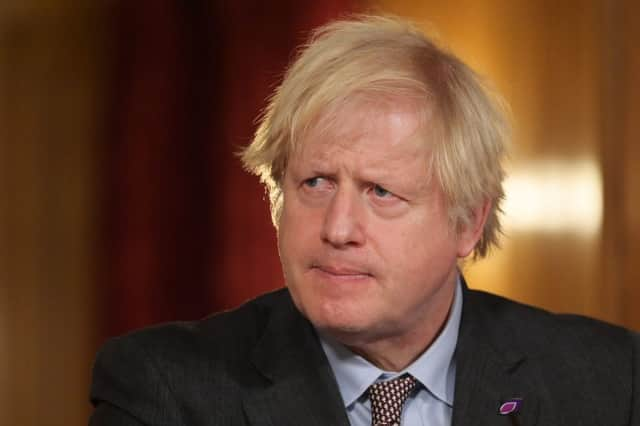Boris Johnson hints England won’t return to regional tiers after lockdown - what he said


Prime Minister Boris Johnson has indicated that England will not return to a system of regional Covid-19 restrictions once the national lockdown comes to an end.
It was expected that regions across England would return to the previous Tier 1 to Tier 4 level restrictions put in place before Christmas, but it is now expected that this system will be scrapped for a more unified approach.
A national approach
Advertisement
Hide AdAdvertisement
Hide AdMr Johnson has suggested that a national approach to easing lockdown measures “might be better this time round” than the previously introduced regional tiers.
The government is due to set out its “road map” for the gradual easing of restrictions over the coming months on 22 Feburary, following a review of the current rules.
At the moment, 8 March has been targeted as the earliest possible date for the reopening of schools and to begin easing other measures.
Mr Johsnon said: “It may be that a national approach, going down the tiers in a national way, might be better this time round, given that the disease is behaving much more nationally.
Advertisement
Hide AdAdvertisement
Hide Ad“If you look at the way the new variant has taken off across the country, it’s a pretty national phenomenon.
“The charts I see, we’re all sort of moving pretty much in the same sort of way, I mean there are a few discrepancies, a few differences, so it may be that we will go for a national approach, but there may be an advantage still in some regional differentiation as well.
“I’m keeping an open mind on that.”
‘Gradual and phased’
Speaking in the House of Commons last week (27 January), Mr Johnson explained that the strategy for lifting the England-wide lockdown will be “gradual and phased” and will be dependent on several factors.
Before the strategy can be confirmed, the government will first assess the success of the vaccination programme so far, the capacity of the NHS and the current death rate, with these variables influencing how and when restrictions can be eased.
Advertisement
Hide AdAdvertisement
Hide AdWhile early March has been targeted as the date measures may begin to lift, experts have warned that relaxing measures too soon could still lead to a rise in cases.
England’s chief medical officer Professor Chris Whitty warned that even a “very small change” while cases are high could cause a rapid resurgence, while chief scientific adviser Sir Patrick Vallance advised against “getting too hooked” on specific dates for easing restrictions.
Experts from Edinburgh University said releasing all measures at the end of April – once all those in the first phase of the vaccination programme covering over-50s, those in high-risk groups and frontline health and social workers are expected to have been offered a jab – could still lead to a huge surge in cases.
Mark Woolhouse, professor of infectious disease epidemiology at the university said a “gradual relaxing” would be “much more likely to keep the pressure off the NHS than any wholesale relaxation”.